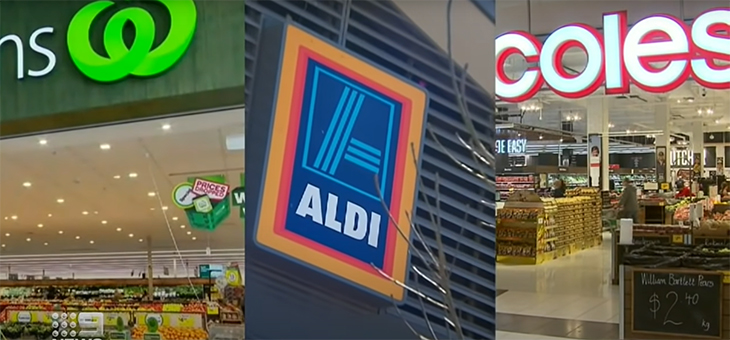How do you choose a supermarket at which to do your shopping? Do you compare prices or decide based on location of the shop? Or do you look at which one sells the healthiest products or has the largest range of Australian-made products?
Would you change your supermarket of choice if one had more healthy home-brand products than another?
The George Institute for Global Health released its FoodSwitch: The State of the Food Supply report on Thursday and it revealed both the home brands with the healthiest ratings and those with the most Australian-made products.
Read: Calls for prescription meds to be sold at supermarkets
George Institute researchers used the government-developed Health Star Rating (HSR) criteria to rank just over 18,000 packaged food and beverage items being sold across Australia.
Woolworths, which had the healthiest home brands last year, maintained its position at the top of the table with the highest overall healthiness ratings. Coles ranked second, ALDI third with IGA coming in at least healthy.
Public health lawyer Dr Alexandra Jones from the George Institute said there had been little change in the overall healthiness of the food supply in the past two years, which was disappointing.
Read: What you have been buying at the supermarket in 2021
“Our data suggest government-led voluntary initiatives encouraging manufacturers to make healthier packaged foods are having little effect,” she said.
The widespread manufacture, marketing and consumption of unhealthy processed and preprepared foods and beverages is a major contributor to Australians’ excess consumption of energy, harmful saturated and trans fats, added sugars and salt, Dr Jones explained.
She said this was leading to spiralling rates of obesity in Australia and associated chronic diseases such as heart disease, stroke and type 2 diabetes.
Dr Jones said that with the world moving towards policies that promote not only healthier but also more sustainable diets, there was an opportunity to look at how front-of-pack labelling could better support this.
Read: Supermarket strategies that get you spending
Coles was crowned the most Aussie with over two-thirds (68 per cent) of its home-brand products grown, produced or made in Australia and eligible to display the kangaroo logo.
Woolworths was second with 61 per cent, IGA a close third with 58 per cent and ALDI bringing up the rear with 49 per cent.
The report was able to compile information on the Australian-ness of products thanks to updated Country of Origin Labelling (CoOL) requirements that were adopted by the Australian government in 2016 and became mandatory for most foods from July 2018.
“Just as consumers need accessible and easy to understand information to help them make healthier food choices, they are also increasingly keen to know where their food is coming from,” Dr Jones said.
The analysis found that products from companies such as Lactalis, with brands including Paul’s and Vaalia, and Lion Dairy and Drinks (now owned by Bega Cheese), were far more Australian than those of the major supermarkets with 95 and 87 per cent of their products displaying the kangaroo logo respectively.
A limited number of products deemed ‘non-priority’ are only voluntarily required to display CoOL – these include seasoning, confectionery, biscuits and snack foods, soft drinks and sports drinks, alcoholic drinks, tea and coffee and bottled water.
Dr Jones said there was little publicly available information on why products were characterised as priority or non-priority, and it left a major gap in transparency for some of Australia’s biggest-selling products.
“This might be due to historical links between CoOL and food safety scares, but can no longer be justified given that consumers now want information about the origins of their shopping to help them make more sustainable choices,” she said.
“For example, Arnott’s is as Aussie as they come but with biscuits classed as ‘non-priority’ foods, the company has chosen not to give consumers the benefit of the full detail of the updated CoOL design.
“While they state that their biscuits are made in Australia, we have no idea about how much of what goes into them is actually locally sourced.”
How do you choose a supermarket at which to do your shopping? Why not share your thoughts in the comments section below?
If you enjoy our content, don’t keep it to yourself. Share our free eNews with your friends and encourage them to sign up.

